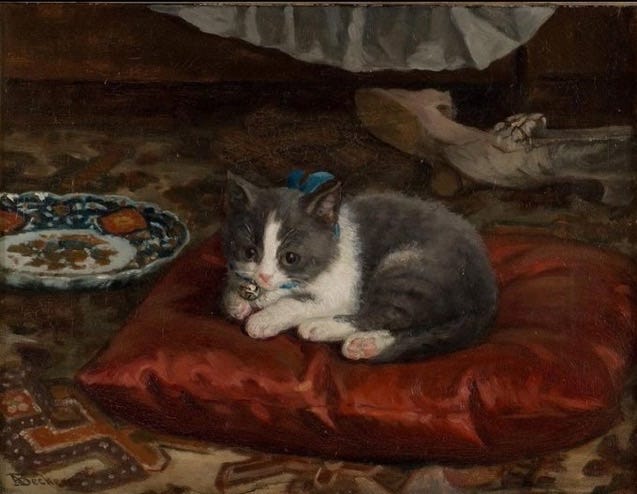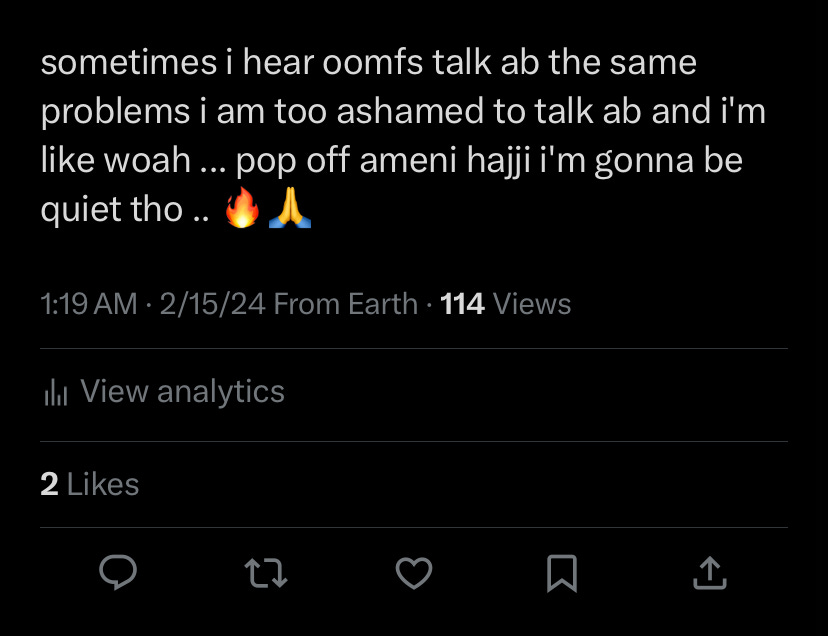the pleasure of being known
The following passage is an excerpt from The White Album by Joan Didion.
“I kept wishing that he would talk about himself, hoping to break through the wall of rhetoric, but he seemed to be one of those autodidacts for whom all things specific and personal present themselves as mine fields to be avoided even at the cost of coherence, for whom safety lies in generalization.”
The author is describing her and other journalists’ attempts at getting a condemned man to reveal something that they could work with. The man stumbles over his words, speaks slower than he thinks, and makes for a character unable to elicit the reader’s passion, for there is very little the reader can see in him. Certainly, there is reason for the author to dedicate words to this man, and he is central to the context of her essay, but if I explained all that and said that the man in question was the leader of the Black Panther party, the historical black power political organization, then what I am about to say next would make me sound a little less serious. I will skirt the question of naming him, and say that the aforementioned lines, outside of the context of the essay, reminded me of myself.
I do this quite often, I think — I speak in abstraction so as not to divulge information that makes plain any of my own troubles. I make fervent claims that the Sartrean thought and Kafkaesque dilemmas reveal irreducible truths about the human condition, yet at the same time I make a point of alluding that I am somehow exempt from the turmoil of being human. These highly intelligent philosophers have fleshed out the unifying agonies of being alive, but I have somehow surpassed their intelligence and coped better than anyone they might have observed. I can’t be sure how well I do this, however, since I am only self-evaluating here, but every time I take a minute too long to formulate a sentence, behind the scenes, I am doing the acrobatics to paint myself as some higher being.
“Everyone goes through the same things,” someone that I no longer talk to once told me, “but you act like you’re better than everyone.” Some time later, someone that I still talk to said, “but that’s what everyone does.” I have gone through stages of believing only one or the other, but now I take both statements to be equally true. Only one was the words of a friend, and the other was those of something else.
I have very little clue about what goes behind this abstraction compulsion, except that I think I operate, to a large extent, on shame. That is probably also why the kinder words of a friend is much harder to digest than those of others, because the other person speaks to me the same way I speak to myself — it is just so familiar. Shame, rational or otherwise, just seems to wield a greater power over me than anything else. Things I say or do are almost always misted with the same deprived feeling, as if even though me and the next person are in the same place, I somehow got there through much more deprivation, and owing to more egregious personal shortcomings. I know not how this works in my mind but only that it is just does, decidedly. I tweeted this the other day when it dawned on me:
How ironic it is then, despite all my concerted efforts to disguise myself, when I discover the joy in feeling seen, and can’t help but love it. The other day, I let my friend borrow my favorite book, and she got back to me, having read two thirds of it, to talk about how much she liked it. I cried alone in my room thinking about that. Maybe because it was the first time someone was reading something I liked. Or maybe from the relief of knowing that someone out there now knows me a little better, albeit through the words of someone else, but at least I didn’t have to cauterize my innards to let myself be known. Couldn’t it just always be like this? Could I just not talk, and be honest, without every shard of truth having to pierce through me?
There seems to be abounding pleasure in being known. When friends say things that feel strangely telling of my disguised and suffocated self, a thought they could not have conceived if they did not truly see past it all, I am overcome with an unrivaled sensation. Because their wish to know me had trumped my efforts to disguise, and because my efforts to disguise did not prepare me for a sudden awareness of our connection, my feelings of shame dissolve to give way for other, brighter emotions. Love, belonging, yada yada. I feel it and I like it. Also, maybe because at times I have talked to people (for so long), trying to be understood (oh, with so many words!), and eventually feigning acquiescence, that when such sharp perception does come my way uninvited, I am rightfully delighted.
I am reminded of the scene from Past Lives, where the American husband says, “you dream in a language I can't understand.” It is probably due to no fault of two people that they are never able to understand each other, but it feels somehow necessary to credit them when they do (a marvel of being alive!). So I live a language no one is obliged to know, and such is the greatest pleasure: to find people who do.
I have not worked through the burgeoning shame; I just know that not feeling it feels nice. Besides, the whole disguise act is just so much work. I have to think harder to lie better, and I just hate thinking.
To love is to rest!
Didion, Joan. The White Album. Simon and Schuster, 1979.
Lee, Greta, Teo Yoo, and John Magaro. Past Lives. Widescreen ed. United States: A24, 2023.



